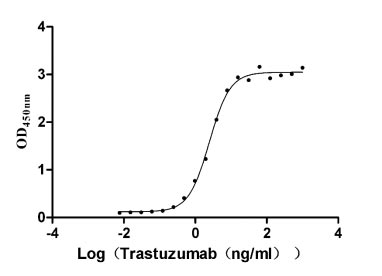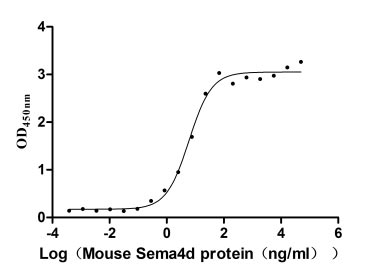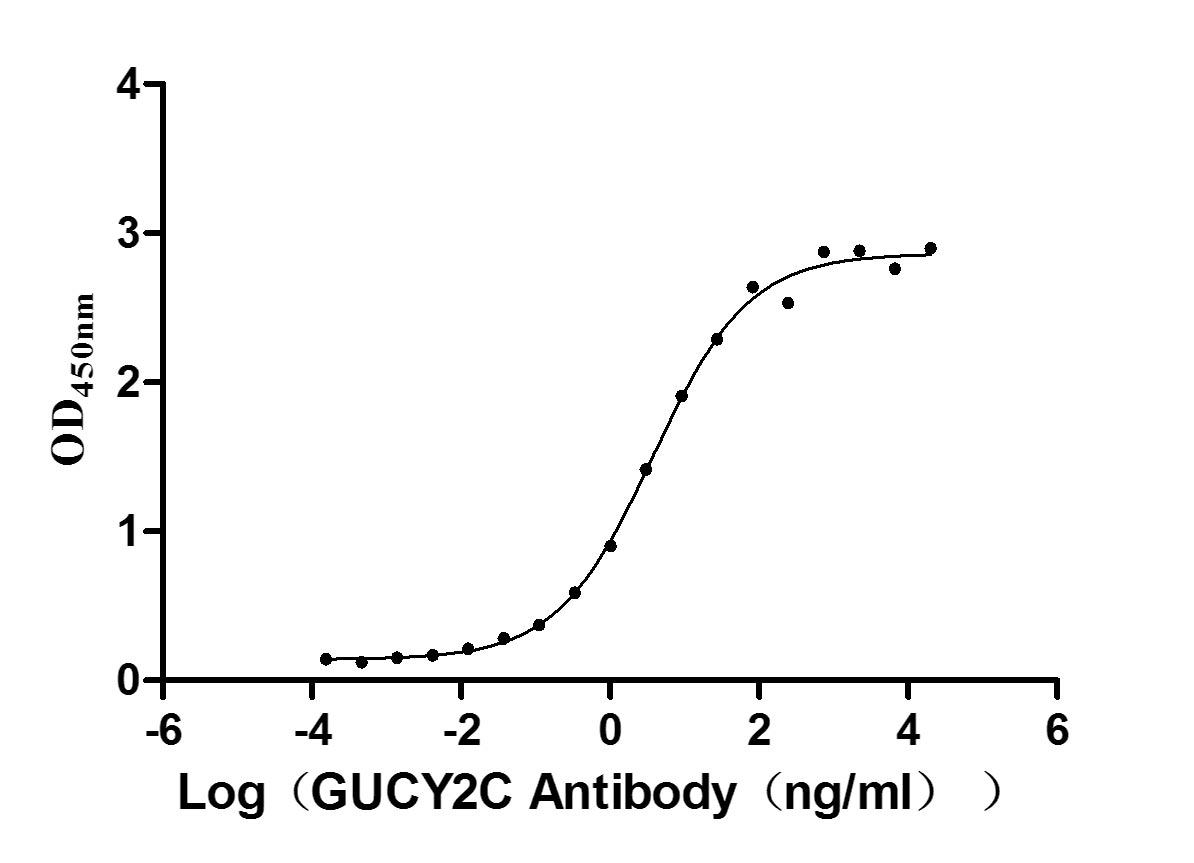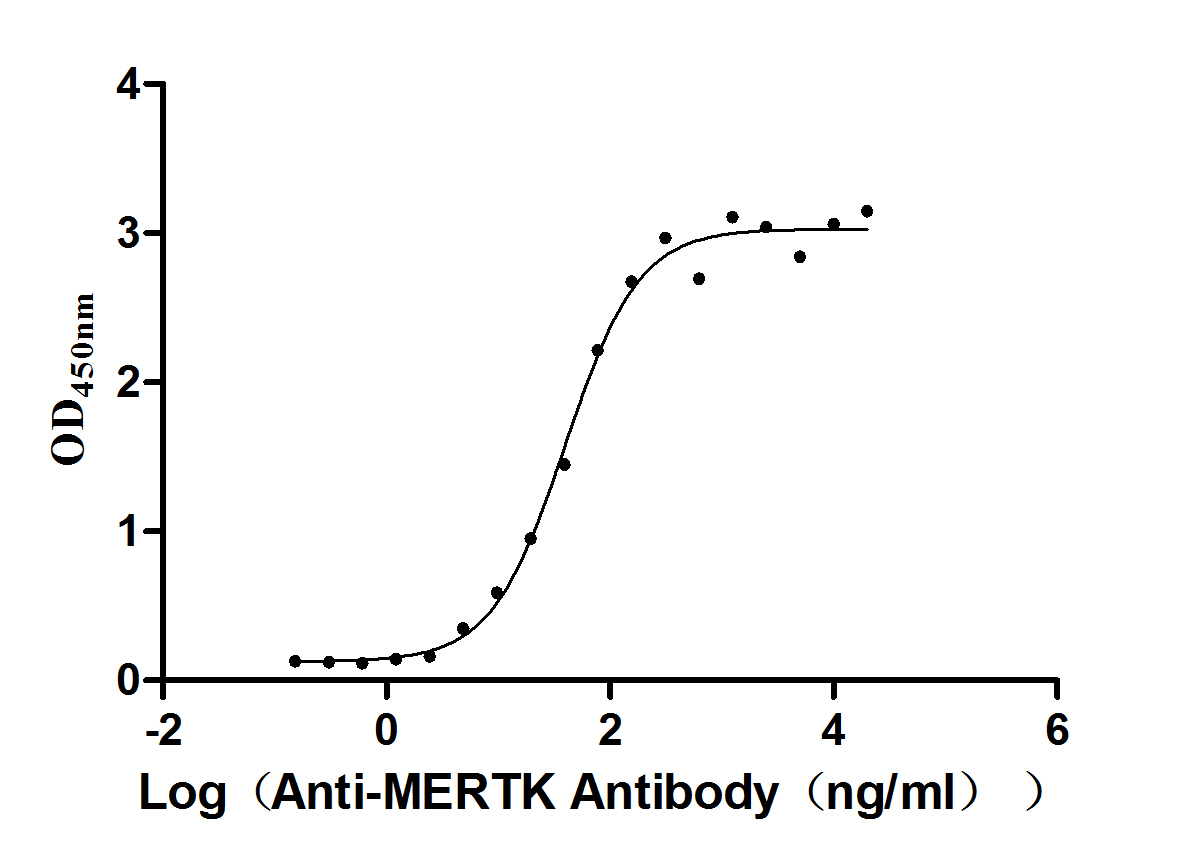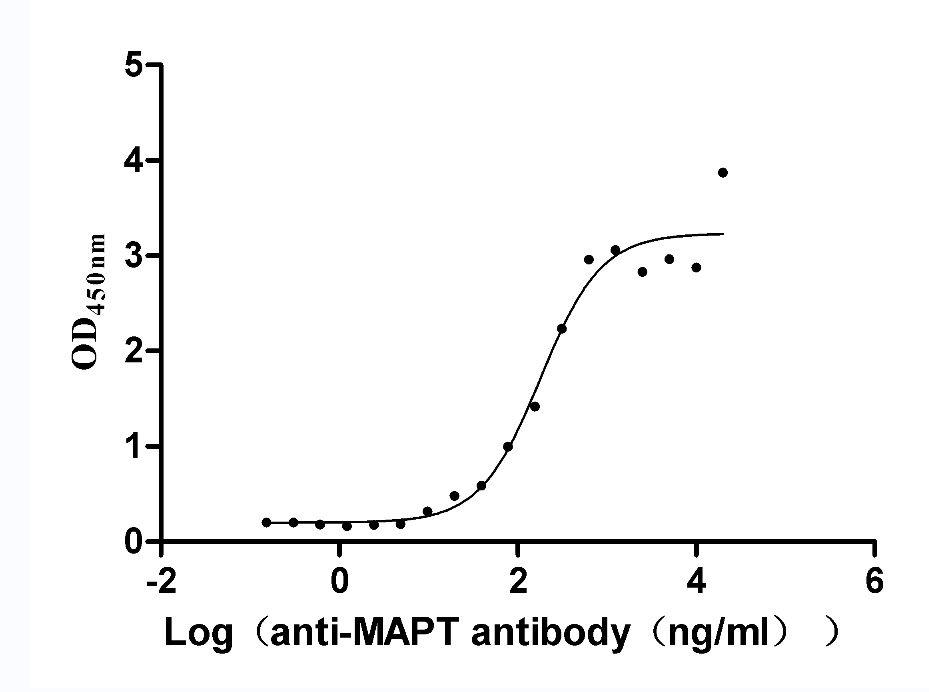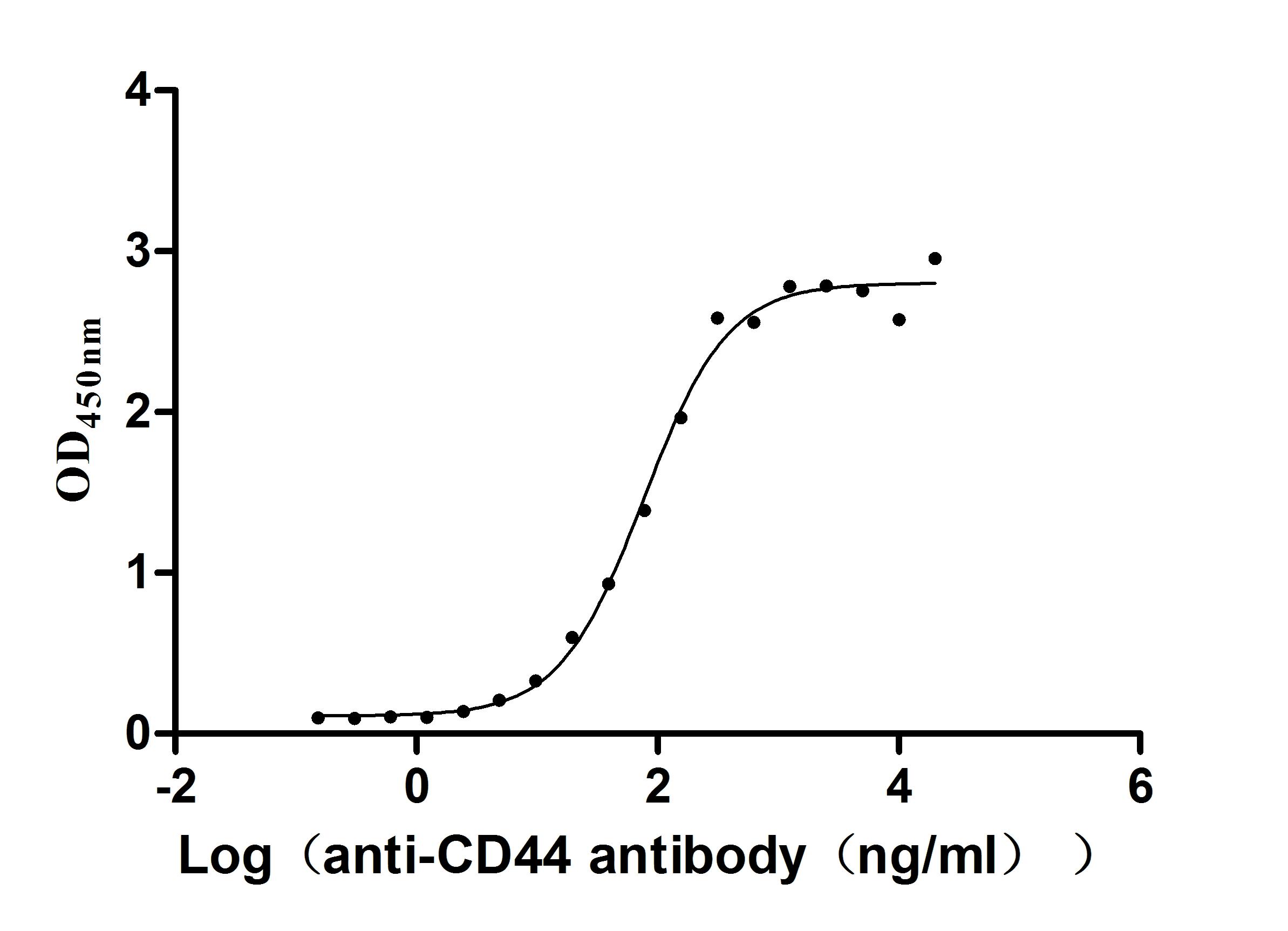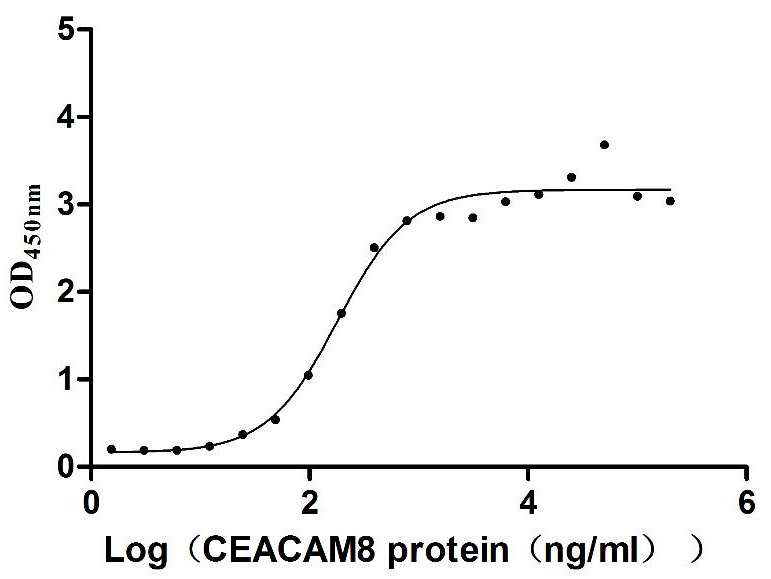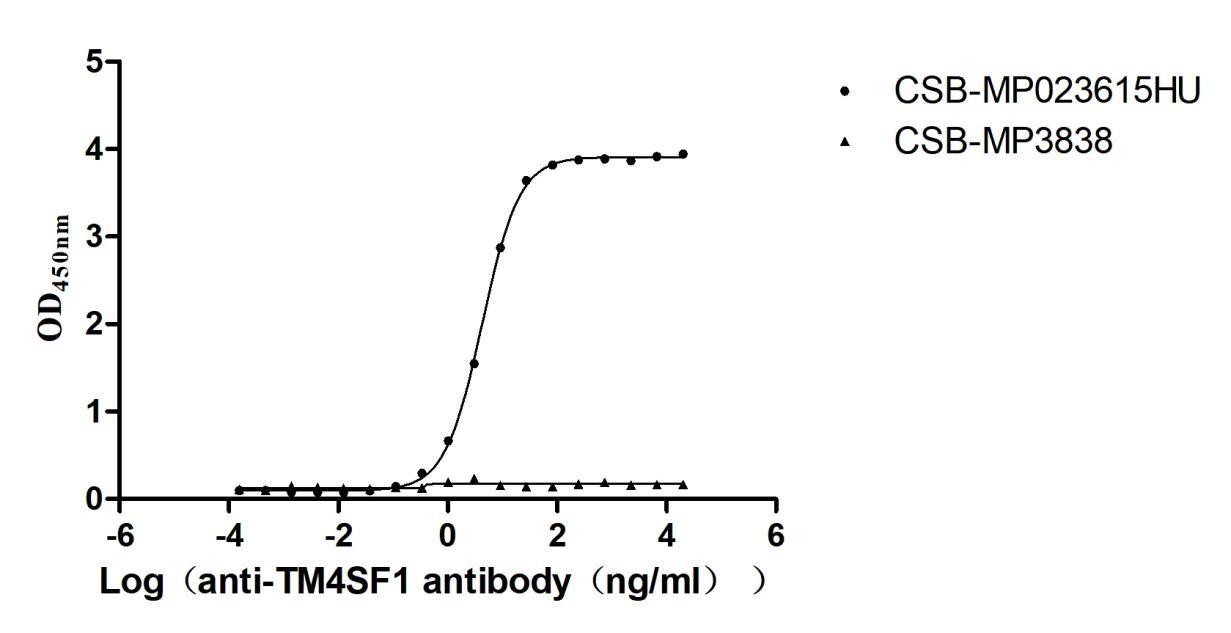Recombinant Human Complement C1q tumor necrosis factor-related protein 5 (C1QTNF5)
-
中文名称:Recombinant Human Complement C1q tumor necrosis factor-related protein 5(C1QTNF5),Yeast
-
货号:CSB-YP863142HU
-
规格:
-
来源:Yeast
-
其他:
-
中文名称:Recombinant Human Complement C1q tumor necrosis factor-related protein 5(C1QTNF5),Yeast
-
货号:CSB-EP863142HU
-
规格:
-
来源:E.coli
-
其他:
-
中文名称:Recombinant Human Complement C1q tumor necrosis factor-related protein 5(C1QTNF5),Yeast
-
货号:CSB-EP863142HU-B
-
规格:
-
来源:E.coli
-
共轭:Avi-tag Biotinylated
E. coli biotin ligase (BirA) is highly specific in covalently attaching biotin to the 15 amino acid AviTag peptide. This recombinant protein was biotinylated in vivo by AviTag-BirA technology, which method is BriA catalyzes amide linkage between the biotin and the specific lysine of the AviTag.
-
其他:
-
中文名称:Recombinant Human Complement C1q tumor necrosis factor-related protein 5(C1QTNF5),Yeast
-
货号:CSB-BP863142HU
-
规格:
-
来源:Baculovirus
-
其他:
-
中文名称:Recombinant Human Complement C1q tumor necrosis factor-related protein 5(C1QTNF5),Yeast
-
货号:CSB-MP863142HU
-
规格:
-
来源:Mammalian cell
-
其他:
产品详情
-
纯度:>85% (SDS-PAGE)
-
基因名:C1QTNF5
-
Uniprot No.:
-
别名:C1QTNF5; CTRP5; UNQ303/PRO344; Complement C1q tumor necrosis factor-related protein 5
-
种属:Homo sapiens (Human)
-
蛋白长度:Full Length of Mature Protein
-
表达区域:16-243
-
氨基酸序列SPPLD DNKIPSLCPG HPGLPGTPGH HGSQGLPGRD GRDGRDGAPG APGEKGEGGR PGLPGPRGDP GPRGEAGPAG PTGPAGECSV PPRSAFSAKR SESRVPPPSD APLPFDRVLV NEQGHYDAVT GKFTCQVPGV YYFAVHATVY RASLQFDLVK NGESIASFFQ FFGGWPKPAS LSGGAMVRLE PEDQVWVQVG VGDYIGIYAS IKTDSTFSGF LVYSDWHSSP VFA
-
蛋白标签:Tag type will be determined during the manufacturing process.
The tag type will be determined during production process. If you have specified tag type, please tell us and we will develop the specified tag preferentially. -
产品提供形式:Lyophilized powder
Note: We will preferentially ship the format that we have in stock, however, if you have any special requirement for the format, please remark your requirement when placing the order, we will prepare according to your demand. -
复溶:We recommend that this vial be briefly centrifuged prior to opening to bring the contents to the bottom. Please reconstitute protein in deionized sterile water to a concentration of 0.1-1.0 mg/mL.We recommend to add 5-50% of glycerol (final concentration) and aliquot for long-term storage at -20℃/-80℃. Our default final concentration of glycerol is 50%. Customers could use it as reference.
-
储存条件:Store at -20°C/-80°C upon receipt, aliquoting is necessary for mutiple use. Avoid repeated freeze-thaw cycles.
-
保质期:The shelf life is related to many factors, storage state, buffer ingredients, storage temperature and the stability of the protein itself.
Generally, the shelf life of liquid form is 6 months at -20°C/-80°C. The shelf life of lyophilized form is 12 months at -20°C/-80°C. -
货期:Delivery time may differ from different purchasing way or location, please kindly consult your local distributors for specific delivery time.Note: All of our proteins are default shipped with normal blue ice packs, if you request to ship with dry ice, please communicate with us in advance and extra fees will be charged.
-
注意事项:Repeated freezing and thawing is not recommended. Store working aliquots at 4°C for up to one week.
-
Datasheet :Please contact us to get it.
相关产品
靶点详情
-
基因功能参考文献:
- High myonectin expression is associated with Type 2 Diabetes. PMID: 29161407
- In children adipocyte C1QTNF5 expression is already strongly related to the degree of obesity and is associated with obesity-related AT alterations, systemic CTRP5 serum levels as well as circulating markers of metabolic disease and is positively regulated by TNFalpha in vitro PMID: 28239164
- Sequencing of C1QTNF5 revealed 28 unique variants although none showed a statistically significant association with dt-GA when compared with 1000G individuals. PMID: 27149696
- Our results provide the first genetic and physiological evidence for CTRP5 as a negative regulator of glucose metabolism and insulin sensitivity. Inhibition of CTRP5 action may result in the alleviation of insulin resistance associated with obesity and diabetes. PMID: 27143553
- Late-onset retinal degeneration, proven to have the p.Ser163Arg mutation in C1QTNF5, and asked whether retina-wide sub-RPE deposit was detectable and quantifiable. PMID: 25010528
- C1QTNF5 monomers can multimerize into a bouquet-like octadecamer. PMID: 24531000
- CTRP-5 might be a novel adipokine that circulates abundantly in human sera. PMID: 23430573
- C1QTNF5 retinopathy is an autosomal dominant LORD resulting in a complex ocular phenotype involving the RPE and ciliary epithelium. SD-OCT findings revealed widespread photoreceptor loss and diffuse choroidal thinning. PMID: 23289492
- cloning of the bicistronic transcript and characterization of the upstream ORF, MFRP PMID: 11263980
- The crystal structure of the trimeric globular domain of human C1QTNF5 at 1.34A resolution reveals unique features of this novel C1q family member. PMID: 22892318
- Late-onset retinal degeneration is a progressive degeneration, and anterior segment abnormalities present early. PMID: 22277927
- pathogenic role of C1qtnf5 Ser163Arg mutation PMID: 22110650
- A physiological function for C1QTNF5 (myonectin) in linking insulin resistance with quantitative changes in mtDNA. PMID: 22031510
- This study revealed the presence of a functional promoter for the CTRP5 gene located 5' of its start site. PMID: 20554618
- CTRP5 has a role in extracellular deposit formation in late-onset retinal degeneration PMID: 12944416
- A single locus at 11q23 is implicated in a complex ocular phenotype involving RPE and CE, tissues of neuroectodermal origin. PMID: 16123441
- In this family with a proven mutation in this gene, peripupillary iris atrophy and abnormally long anterior zonular insertions were present before retinal changes and visual loss. PMID: 16376663
- L-ORMD is due to insufficient levels of secreted C1QTNF5, compromised RPE cell function resulting from ER retention of the mutant protein or both mechanisms. PMID: 16600989
- C1QTNF5 has a role in late-onset retinal degeneration PMID: 17249553
显示更多
收起更多
-
相关疾病:Late-onset retinal degeneration (LORD)
-
亚细胞定位:Secreted.
-
数据库链接:
HGNC: 14344
OMIM: 605670
KEGG: hsa:114902
STRING: 9606.ENSP00000402389
UniGene: Hs.632102
Most popular with customers
-
Recombinant Human Receptor tyrosine-protein kinase erbB-2 (ERBB2), partial (Active)
Express system: Mammalian cell
Species: Homo sapiens (Human)
-
Recombinant Mouse Semaphorin-4D (Sema4d), partial (Active)
Express system: Mammalian cell
Species: Mus musculus (Mouse)
-
Recombinant Human Heat-stable enterotoxin receptor (GUCY2C), partial (Active)
Express system: Mammalian cell
Species: Homo sapiens (Human)
-
Recombinant Human Tyrosine-protein kinase Mer (MERTK), partial (Active)
Express system: Mammalian cell
Species: Homo sapiens (Human)
-
Recombinant Rat Microtubule-associated protein tau (Mapt) (Active)
Express system: Mammalian cell
Species: Rattus norvegicus (Rat)
-
Recombinant Macaca fascicularis CD44 antigen (CD44), partial (Active)
Express system: Mammalian cell
Species: Macaca fascicularis (Crab-eating macaque) (Cynomolgus monkey)
-
Recombinant Human Carcinoembryonic antigen-related cell adhesion molecule 6 (CEACAM6) (Active)
Express system: Mammalian cell
Species: Homo sapiens (Human)
-
Recombinant Human Transmembrane 4 L6 family member 1(TM4SF1)-VLPs (Active)
Express system: Mammalian cell
Species: Homo sapiens (Human)


